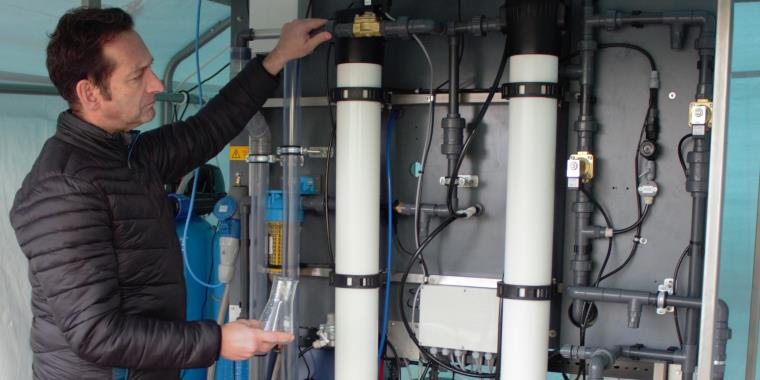Early in 2019, Paqua, then known as Portsmouth Aqua worked together with researchers at the University of the West of England (UWE) – Professor Darren Reynolds, Dr Robin Thorn, Dr Bethany Fox and Dr Gillian Clayton to test the effectiveness of our drinking water purification system. For this drinking water purification system research, we supplied our unit that was at the time, named the ‘Ninja’. This drinking water purification system is built out of the core elements of all of our PaquaVida purification systems. The UWE research was setting out to test the effectiveness of the system as part of a wider international project with partners in India.
Executive Summary (Taken from UWE Technical Report 3.2 – Professor Darren Reynolds)
There is a requirement for sustainable, reliable and robust water treatment systems that are a suitable scale for the community they serve. The application of conventional centralised water and sanitation systems are unsustainable for many communities for low and middle- income countries due to demographics, infrastructure requirements, associated high maintenance costs and localised and diverse governance system. Decentralised off-grid drinking water treatment systems exhibit modular characteristics that allow the production of drinking water at different scales.
The main aim of this study was to undertake the first long-term and continuous trial of the newly developed PAqua 1000D-2 water purification unit. This system (NINJA) was installed into a drinking water treatment platform (DWTP) at UWE, Bristol in October 2019. The trial reported here was conducted between November 2019 and February 2020. This trial assessed the ability of the system to run continuously, without human intervention, and whether this technology platform could provide biologically safe drinking water from a heavily contaminated raw water source.
In conclusion, the trial was successful providing proof-of-concept data of the NINJA-DWTP system. Throughout the period of the trial the NINJA-DWTP required only minimal human intervention and regularly produced biologically and chemically safe drinking water as defined by the UK Drinking Water Inspectorate. This trial highlighted the importance of pre- conditioning the incoming water via pre-filtration to maintain membrane health.
The lead scientist on the project, Professor Darren Reynolds said: “Clean water should be available for everyone. Globally, at least two billion people use a drinking water source contaminated with faeces resulting in millions of deaths, mostly in children.” He explained that the system developed in partnership with UWE, is capable of treating fresh water, from sources including boreholes, rivers, ponds and lakes, which are contaminated with bacteria and turning it into crystal clear drinking water.
He added: “In three weeks on campus, we have produced 300,000 litres – enough to fill 900,000 small plastic bottles! The implementation of the unit in India will allow us to further understand the operating challenges associated with this technology.”
The UWE explains their experience here.




